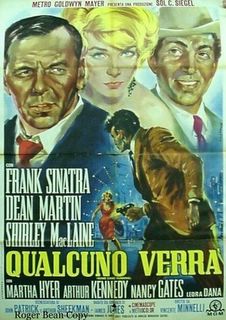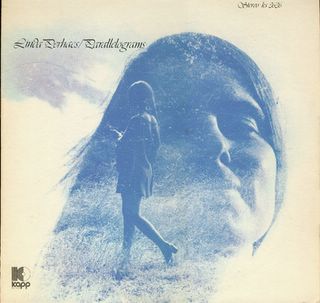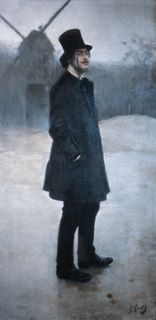
my picks from the
Turner Classic Movies Print Schedule times Pacific, schedule Canadian (for rights reasons there's some we don't get up here), this week
12 Monday
2:30 PM Some Came Running (1958) A veteran returns home to deal with family secrets and small-town scandals. Frank Sinatra, Shirley MacLaine, Dean Martin. D: Vincente Minnelli. C 136m. (near-best from all leads)
13 Tuesday
8:00 AM 3:10 To Yuma (1957) A sheriff must run the gauntlet to get his prisoner out of town. Glenn Ford, Van Heflin, Felicia Farr. D: Delmer Daves. BW 92m. (from an Elmore Leonard story)
3:00 PM Possessed (1947) A married woman's passion for a former love drives her mad. Joan Crawford, Van Heflin, Raymond Massey. D: Curtis Bernhardt. BW 108m. (haven't seen it, but...)
8:00 PM The Haunting (1963) A team of psychic investigators moves into a haunted house that destroys all who live there. Julie Harris, Claire Bloom, Russ Tamblyn. D: Robert Wise. BW 112m. (still scary)
12:00 AM Sabotage (1936) An unhappily married woman discovers her husband is an enemy agent. Sylvia Sidney, Oscar Homolka, John Loder. D: Alfred Hitchcock. BW 77m. (from Conrad's Secret Agent)
14 Wednesday
3:00 AM The Brothers Karamazov (1958) In this adaptation of the Dostoevsky classic, four brothers fight to adjust to the death of their domineering father. Yul Brynner, Maria Schell, William Shatner. D: Richard Brooks. C 146m. (stolen by Albert Salmi as Smeryadkov)
6:00 AM Othello (1922) In this silent film, a famed general is led astray by jealousy and an evil underling. Emil Jannings, Lya De Putti, Werner Krauss. D: Dimitri Buchowetzki. BW 80m. (never seen it, but...)
7:30 AM A Midsummer Night's Dream (1935) Shakespeare's classic about two pairs of lovers and an amateur actor who get mixed up with fairies. James Cagney, Dick Powell, Mickey Rooney. D: Max Reinhardt, William Dieterle. BW 143m. (Mickey Rooney as Zukofsky's Puck)
2:30 PM Julius Caesar (1953) An all-star adaptation of Shakespeare's classic about Julius Caesar's assassination and its aftermath. Marlon Brando, James Mason, John Gielgud. D: Joseph L. Mankiewicz. BW 121m. (Brando steals it...)
15 Thursday
5:00 AM Jezebel (1938) A tempestuous Southern belle's willfulness threatens to destroy all who care for her. Bette Davis, Henry Fonda, Fay Bainter. D: William Wyler. BW 104m. (all the Wyler Bette Davis movies are great)
11:00 AM The War Lord (1965) A medieval knight's efforts to defend his lord are complicated when he falls in love. Charlton Heston, Richard Boone, Rosemary Forsyth. D: Franklin J. Schaffner. C 121m. (strange kind of prequel to Planet of the Apes)
5:00 PM The Man From Laramie (1955) A wandering cowboy gets caught in the rivalry between an aging rancher's sons. James Stewart, Arthur Kennedy, Donald Crisp. D: Anthony Mann. C 102m. (they have a nice print)
16 Friday
4:30 AM A Dispatch From Reuters (1940) An entrepreneur builds an international news agency. Edward G. Robinson, Edna Best, Eddie Albert. D: William Dieterle. BW 90m. (has scenes of pigeons)
6:00 AM Manpower (1941) Power linemen feud over love of a sultry nightclub singer. Edward G. Robinson, Marlene Dietrich, George Raft. D: Raoul Walsh. BW 103m. (this used to be on CBC twice a year--some good Warner Brothers weather)
9:15 AM Experiment Perilous (1944) A small-town doctor tries to help a beautiful woman with a deranged husband. Hedy Lamarr, Paul Lukas, George Brent. D: Jacques Tourneur. BW 91m. (never seen it...)
3:00 PM Winter Meeting (1948) A repressed poetess and an embittered war hero help each other cope with their problems. Bette Davis, Jim Davis, Janis Paige. D: Bretaigne Windust. BW 105m.
11:00 PM It's A Wonderful World (1939) A runaway poetess helps a fugitive prove himself innocent of murder charges. Claudette Colbert, James Stewart, Guy Kibbee. D: W.S. Van Dyke II. BW 86m. (poetess double feature, haven't seen either)
17 Saturday
5:00 AM He Walked By Night (1948) After killing a cop, a burglar fights to evade the police. Richard Basehart, Scott Brady, Roy Roberts. D: Alfred Werker. BW 79m. (unseen noir...)
7:00 PM The Best Years Of Our Lives (1946) Three returning servicemen fight to adjust to life after World War II. Fredric March, Dana Andrews, Myrna Loy. D: William Wyler. BW 170m. (Wyler again, with Gregg Toland)
18 Sunday
9:00 PM The Unknown (1927) In this silent film, an escaped killer pretends to be a sideshow's armless wonder. Lon Chaney, Joan Crawford, Norman Kerry. D: Tod Browning. BW 50m. (never seen this...)












